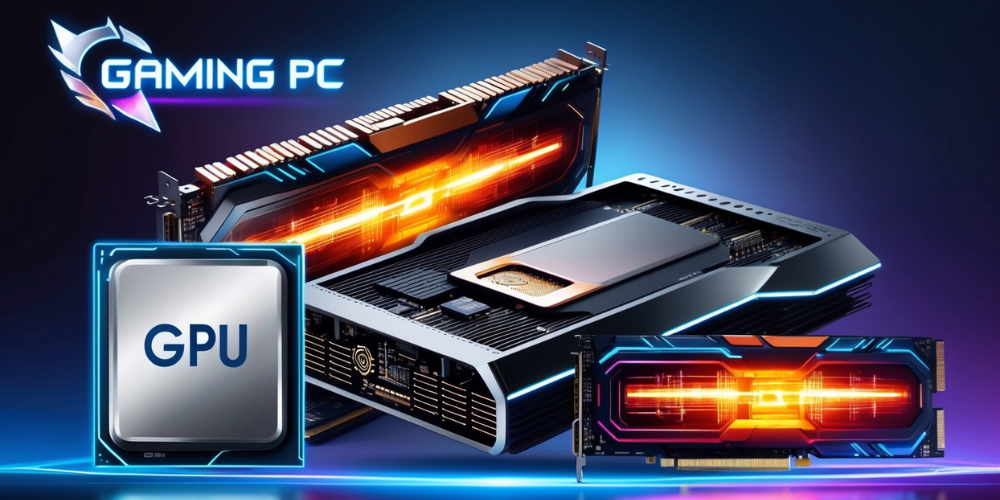Mastering Gaming PC Construction: CPU, GPU, and RAM Selection Unveiled
- Nov 17, 2024
- 1151
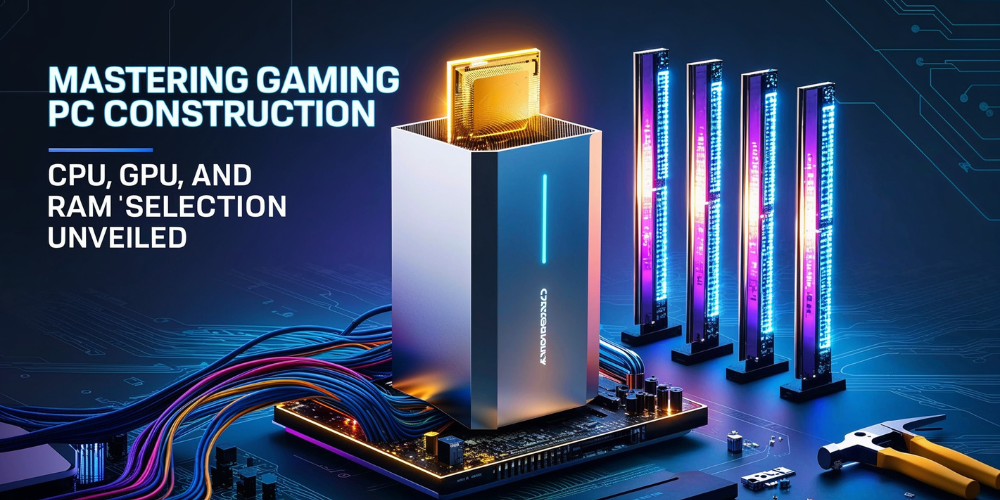
Building a gaming PC can feel like piecing together a complex puzzle. From countless specifications to the myriad of choices, it can be a daunting endeavor. However, understanding the primary components—CPU, GPU, and RAM—that contribute to your PC’s performance can demystify the process. These core components significantly impact your gameplay experience, and making the right choices can transform your gaming sessions into an extraordinary journey. Let’s navigate these essential elements and find the best fit for your gaming needs.
Deciphering the CPU: The Computing Powerhouse
The Central Processing Unit (CPU) is the orchestrator of all computing tasks within your system. Responsible for processing instructions from games and applications, it's essential for overall system responsiveness and multitasking capabilities.
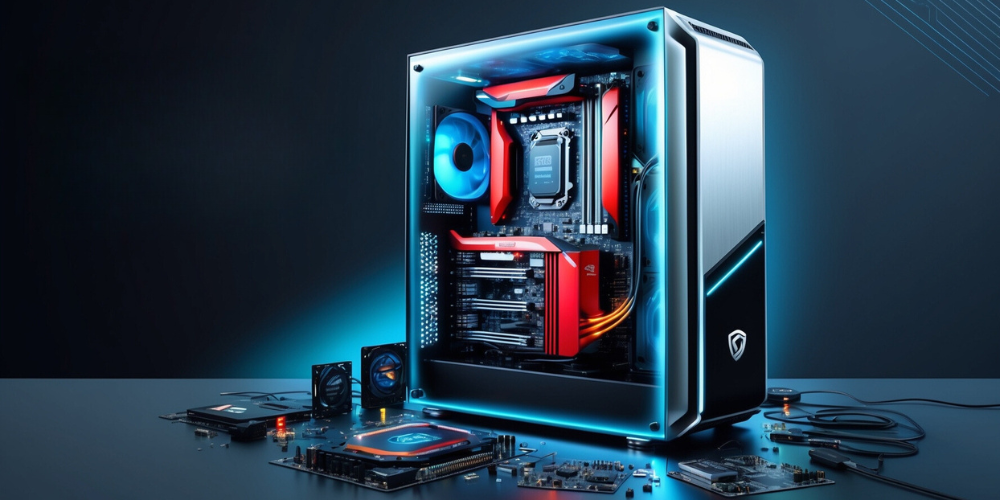
- Core Count and Threads: Modern games benefit from multi-core processors. Opting for a CPU with 6-8 cores, like those from AMD's Ryzen or Intel’s Core series, provides a solid performance foundation. More cores aid in multitasking, such as running games while streaming or managing multiple background applications.
- Clock Speed: Higher clock speeds translate to faster instruction processing. A CPU with a higher GHz rating will enhance performance in CPU-bound games, including strategy and simulation genres.
Balancing core count and clock speed is key for an optimal gaming experience. Aim for a processor that will meet your gaming demands today and in the foreseeable future.
GPU: The Visual Maestro of Your System
Your Graphics Processing Unit (GPU) is the critical component handling all things visual, from rendering stunning graphics to maintaining smooth frame rates. The choice of GPU will heavily influence your visuals and the experience you have when diving into virtual worlds.
- VRAM Considerations: Video RAM (VRAM) is crucial for storing textures and rendering complex scenes. For 1080p gaming, 6-8GB of VRAM is typically sufficient. If you're aiming for 4K gameplay, consider GPUs with 10GB or more.
- Ray Tracing and DLSS: Explore GPUs that support ray tracing for breathtaking lighting and shadow effects. NVIDIA’s RTX lineup and AMD's latest offerings bring this technology to life. DLSS (Deep Learning Super Sampling) enhances frame rates by AI upscaling, which is a must-have for demanding titles.
- Clock Speeds: Both core clock and boost clock speeds affect how quickly your GPU can process graphics data. Pairing these with architectural advances can lead to significant performance gains.
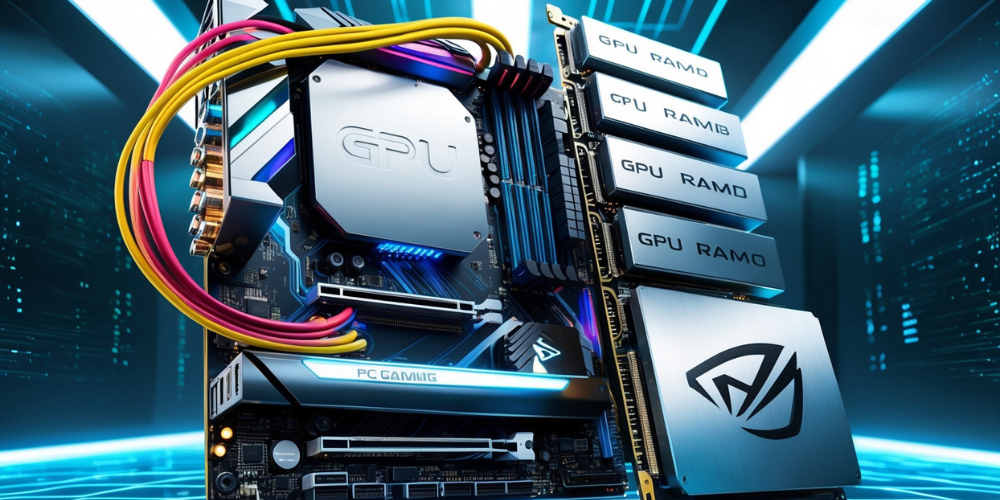
Evaluating the visual demands of your favorite games and aligning them with GPU capabilities will ensure seamless gaming experiences, whether you're exploring vast landscapes or engaging in fast-paced action.
RAM Requirements: The Balance Between Speed and Capacity
The importance of Random Access Memory (RAM) is often underestimated in gaming PCs. Acting as a bridge between storage and your CPU/GPU, RAM allows quick access to data, directly influencing load times and in-game performance.
- Capacity Needs:
- 8GB: Suitable for entry-level gaming requirements, accommodating less demanding titles.
- 16GB: The sweet spot for most gamers, offering ample capacity for modern games and moderate multitasking.
- 32GB: Ideal for future-proofing or users engaged in intense multitasking and content creation.
- Speed & Latency: Aim for RAM speeds in the 3000-3600MHz range to maximize data access efficiency. Lower latency modules can further enhance system responsiveness.
For optimal performance, configure your RAM in a dual-channel setup, leveraging two sticks of RAM to enhance data access speeds and system fluidity.
Storage Solutions: Beyond SSD and HDD
Storage is the silent hero of your gaming rig, influencing everything from system boot times to game load times. Determining the best storage option demands an appreciation of both speed and capacity.
- Solid-State Drives (SSD): Offering rapid read and write speeds, SSDs significantly cut down on game load times and system boot durations. NVMe SSDs are the top-performing choice for speed enthusiasts.
- Hard Disk Drives (HDD): While slower, HDDs provide expansive storage at a budget-friendly price—perfect for extensive media collections or archiving large games.
Many gamers find a hybrid approach beneficial, utilizing an SSD for quick system and game loads with an HDD for larger storage needs.
Motherboard and Beyond: Expanding and Evolving
The motherboard is the unsung backbone of your setup, ensuring all your parts communicate seamlessly. It dictates expandability options, from additional GPUs to peripheral interfaces, shaping your system’s potential.
- Compatibility Matters: Ensure your motherboard's socket and chipsets align with your chosen CPU and components.
- Expansion Potential: A motherboard with adequate PCIe slots provides room for growth, crucial for futureproofing your gaming setup.
- Overclocking Capabilities: Enthusiasts planning to push their processor or memory boundaries should verify the motherboard supports such tweaks.
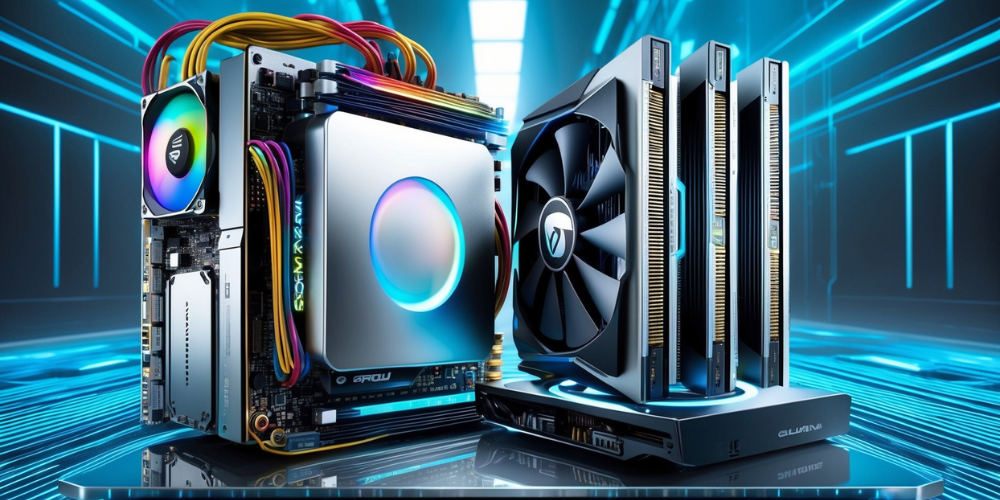
With a forward-looking mindset, select a motherboard that offers both performance and room for growth, adapting as your gaming ambitions evolve.
Powering Up: Getting the Right PSU
A reliable Power Supply Unit (PSU) safeguards all your investment by providing stable electricity. It's critical to choose a PSU that not only suits your current system but can accommodate future enhancements.
- Wattage Requirements: Calculate the aggregated power draw of your components. A PSU between 600W-750W typically suffices for most configurations, with additional overhead for upgrades.
- Efficiency Standards: Invest in an 80+ Gold-rated PSU for a balance of efficiency, cost-effectiveness, and thermal management.
A quality PSU ensures quieter operation and a longer lifespan for your components, paving the way for future upgrades.
Thermal Management: Keeping Cool Under Pressure
Effective cooling is indispensable for maintaining performance peaks and prolonging hardware life. As you assemble your setup, consider both air and liquid cooling solutions and their impact on performance and noise levels.
- Air Cooling: This option offers simplicity and affordability, making it suitable for most setups. High-quality aftermarket air coolers efficiently manage heat for standard builds.
- Liquid Cooling: While more costly, liquid cooling excels at dissipating heat, which is ideal for tackling overclocked or high-performance systems.
- Case Ventilation: Prioritize cases with excellent airflow, ensuring your components remain thermally stable. Strategic placement of intake and exhaust fans can substantially reduce temperatures.
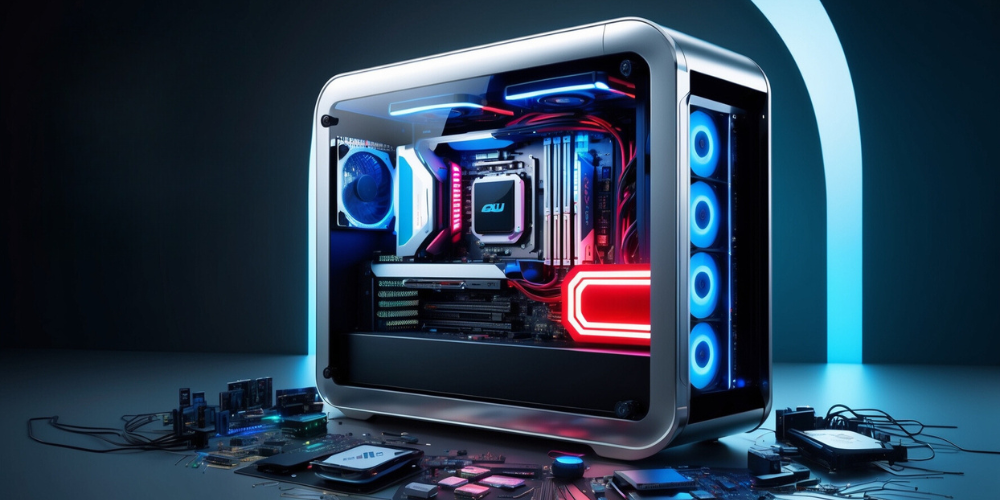
By maintaining optimal temperatures, you unlock an environment where your gaming PC can perform unfettered, delivering the immersive experiences you crave.
Conclusion: Your Gaming Hardware Odyssey
Embarking on the journey to construct a gaming PC is as rewarding as it is complex. Each component—CPU, GPU, RAM, and more—contributes uniquely to your overall gaming pleasure. By understanding and selecting the right elements, you set the stage for memorable gaming adventures. Remember, as technology evolves, so should your plans for future upgrades and expansions. Equip your PC with components that not only satisfy present needs but also embrace forthcoming advancements. With the right approach, your gaming PC will stand as a testament to dedication and an avenue for countless hours of enjoyment.
